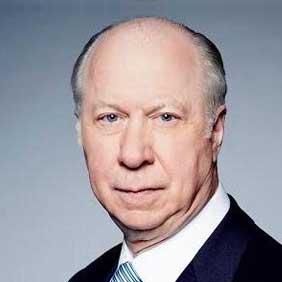 After Watergate pulled him off course, he focused on his values.
After Watergate pulled him off course, he focused on his values.
Throughout Discover Your True North, successful individuals discuss how they became authentic leaders. This forum is a chance to delve deeper into the thoughts and journeys of these influential leaders. In this profile, we will talk about values with former presidential adviser David Gergen.
Thank you for joining us, David. Currently you are a professor of public leadership at the Harvard Kennedy School and the director of its Center for Public Leadership, but once upon a time you were a young speechwriter for Richard Nixon?
Yes. I worked for President Nixon as a speechwriter. I think when I arrived in Washington the power, glamour, and status of working in the White House went to my head. After the 1972 reelection, I was the leader of his speechwriting and research team. I was supervising 50 people at a young age. It was tempting to fall into the arrogance that was demonstrated by that administration.
And the Watergate scandal broke just as that second term was starting?
Yes, and I certainly had a ringside seat. I was initially assured of the president’s innocence. Maybe I wanted to believe him, maybe I liked having a White House job. I know that I was worried resigning might make me look like I was abandoning a sinking ship, so I stayed on. Eventually, the story changed. I found out about Nixon’s guilt a couple days before everyone else. The president tasked me with crafting his resignation.
Looking back, would you have left the administration earlier?
I’m not sure what I would have done. I can only speak to what happened. At the time I was enamored with working in the White House and I wanted to stay in that world. That is why I lost sight of my values for a time. I got caught up with the idea of a powerful position. It was my first prestigious job and, when Nixon resigned, part of me thought it would be my last.
What did happen to your career after Nixon resigned?
After President Nixon left the White House for last time on Marine One, the phone did not ring for a while. Only a few close friends stayed in touch. I learned a valuable lesson about what one has left after a crisis – because all I had were the people who were most loyal, those I was closest to, and myself. After Watergate, I got back to my roots, refocused on my values.
I decided that I had to be much more transparent in my career moving forward, and more honest with myself about my beliefs and principles — especially before I faced another crisis.
You went on to advise Presidents Ford, Reagan and Clinton. Is that right?
I did. I was able to process Watergate and learn from my experiences. Looking back, it was transformative. I strengthened the relationships I had and moved on. Watergate taught me a lot about my own values and how to handle certain situations in the future. It was certainly a difficult way to learn a lesson, but it was very important to my development.
If there is one major takeaway from your experience in the Nixon administration that defines you as a leader today, what is it?
Watergate taught me that I had a lot to learn. A title isn’t the most important thing, as it may be temporary. My experience also changed how I interact with other leaders or bosses. Since Watergate, I have frequently disagreed with those I worked for because the failure of the Nixon administration remains so vivid in my mind. One has to stay true to his or her values, even if those values conflict with the values of a person in power.
It comes down to you, doesn’t it? One thing we are learning through the discussions in Discover Your True North is that you have to be true to yourself and only then can you grow as a leader.
That’s right. The hard times reveal the most about you. There are times in your life when all you have to lean on is your own moral compass. I learned that President Nixon did not have a moral compass – and everything went off track because of it.
Thank you for your time, David. I know others are interested to hear this first-hand account of such a critical American event.

 What are the most valuable things in your life?
What are the most valuable things in your life? According to the jazz pianist Thelonious Monk, “
According to the jazz pianist Thelonious Monk, “ When she lost her health, she lost her way – then found both again.
When she lost her health, she lost her way – then found both again. Growing as a leader, like growing as a person, means learning from difficult times. I call these times crucibles, and I’m sorry to say that every person on the planet will have to endure a few. Your crucibles may include the death of someone you love, a major illness, a divorce, or a professional failure. As a leader, you must learn to process difficult times in a way that allows you to come out on the other side stronger – and inspire those around you.
Growing as a leader, like growing as a person, means learning from difficult times. I call these times crucibles, and I’m sorry to say that every person on the planet will have to endure a few. Your crucibles may include the death of someone you love, a major illness, a divorce, or a professional failure. As a leader, you must learn to process difficult times in a way that allows you to come out on the other side stronger – and inspire those around you.